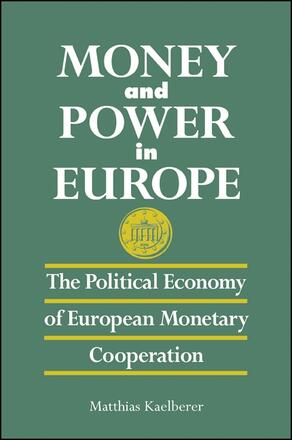
Money and Power in Europe
The Political Economy of European Monetary Cooperation
Alternative formats available from:
Traces the history of European monetary negotiations from the 1960s to the 1990s.
Description
Tracing the forty-year history of negotiations to construct exchange rate regimes in the European Union, Money and Power in Europe emphasizes the role of a state's bargaining power for the formation of rules. In contrast to the prevailing literature's emphasis on domestic factors like sectoral and partisan interests, policy ideas and domestic institutional structures, Matthias Kaelberer highlights the structural conflict of interest between weak and strong currency countries over the rules of monetary cooperation. Strong currency countries, in particular Germany, because they do not face a reserve constraint, are in a position to shape the rules of monetary regimes decidedly in their favor, including the refusal to compromise on rules of domestic macroeconomic adjustment.
Matthias Kaelberer is Assistant Professor of Political Science at Iowa State University.
Reviews
"…important contribution … highly recommended. " — American Political Science Review
"An excellent discussion of the origins and evolution of EU monetary cooperation that, at the same time, makes clear that Germany's ability to shape European monetary institutions has been a fundamental factor. " — Thomas H. Oatley, author of Monetary Politics: Exchange Rate Cooperation in the European Union
"The historical breadth makes this study unique. It is definitely original in the sense that it contradicts much of the conventional wisdom of European monetary integration. " — Karl Kaltenthaler, author of Germany and the Politics of Europe's Money